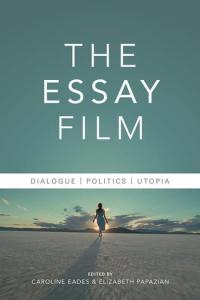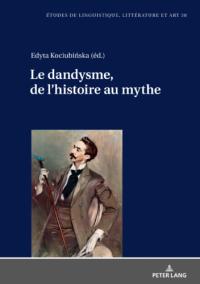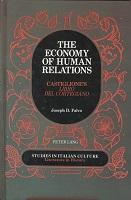Listening While Reading
How the ear, eye and mind collaborate to strengthen reading and comprehension.


Research in the School of Languages, Literatures and Cultures is interdisciplinary and vibrant.
Faculty and graduate students pursue research in numerous languages and programs.

With its increasing presence in a continuously evolving media environment, the essay film as a visual form raises new questions about the construction of the subject, its relationship to the world, and the aesthetic possibilities of cinema. In this volume, authors specializing in various national cinemas (Cuban, French, German, Israeli, Italian, Lebanese, Polish, Russian, American) and critical approaches (historical, aesthetic, postcolonial, feminist, philosophical) explore the essay film and its consequences for the theory of cinema while building on and challenging existing theories. Taking as a guiding principle the essay form's dialogic, fluid nature, the volume examines the potential of the essayistic to question, investigate, and reflect on all forms of cinema—fiction film, popular cinema, and documentary, video installation, and digital essay. A wide range of filmmakers are covered, from Dziga Vertov (Man with a Movie Camera, 1928), Chris Marker (Description of a Struggle, 1960), Nicolás Guillén Landrián (Coffea Arábiga, 1968), Pier Paolo Pasolini (Notes for an African Oresteia, 1969), Chantal Akerman (News from Home, 1976) and Jean-Luc Godard (Notre musique, 2004) to Nanni Moretti (Palombella Rossa, 1989), Mohammed Soueid (Civil War, 2002), Claire Denis (L'Intrus, 2004) and Terrence Malick (The Tree of Life, 2011), among others. The volume argues that the essayistic in film—as process, as experience, as experiment—opens the road to key issues faced by the individual in relation to the collective, but can also lead to its own subversion, as a form of dialectical thought that gravitates towards crisis.
Edited By Christina Gerhardt and Sara Saljoughi
1968 and Global Cinema addresses a notable gap in film studies. Although scholarship exists on the late 1950s and 1960s New Wave films, research that puts cinemas on 1968 into dialogue with one another across national boundaries is surprisingly lacking. Only in recent years have histories of 1968 begun to consider the interplay among social movements globally. The essays in this volume, edited by Christina Gerhardt and Sara Saljoughi, cover a breadth of cinematic movements that were part of the era's radical politics and independence movements. Focusing on history, aesthetics, and politics, each contribution illuminates conventional understandings of the relationship of cinema to the events of 1968, or "the long Sixties."
We all have images that we find unwatchable, whether for ethical, political, or sensory and affective reasons. From news coverage of terror attacks to viral videos of police brutality, and from graphic horror films to transgressive artworks, many of the images in our media culture might strike us as unsuitable for viewing. Yet what does it mean to proclaim something “unwatchable”: disturbing, revolting, poor, tedious, or literally inaccessible? With over 50 original essays by leading scholars, artists, critics, and curators, this is the first book to trace the “unwatchable” across our contemporary media environment, in which viewers encounter difficult content on various screens and platforms. Appealing to a broad academic and general readership, the volume offers multidisciplinary approaches to the vast array of troubling images that circulate in global visual culture.
Edited By Edyta Kociubińska

The notion of a socially engaged dandyism – let alone a political one – seems to be antithetical to the definition proposed by Charles Baudelaire, that “A Dandy does nothing. Can you imagine a Dandy speaking to the people, except to scoff?” Yet it is from within the inherently political framework of a cultural revolution, undertaken in the first half of the nineteenth century by young adepts of the Romantic movement, that many of the poses and clichés surrounding the figure of the fin-de-siècle dandy originate. Examining the texts that Gautier, Borel, and their peers publish during this period, as well as satirical articles written about them in the press, this essay theorizes the young Romantics’ transgressive self-fashioning in the aftermath of Hernani as a kind of militant dandyism.
L’article se penche sur la problématique de la secondarité dans une œuvre considérée comme secondaire dans le corpus nervalien – son premier récit en prose, paru en 1832 sous le titre de « La Main de Gloire, histoire macaronique ». Trace de l’éphémère camaraderie du bousingo, ce conte, où dominent l’autoparodie et la dénégation, laisse deviner un jeune Nerval aux prises avec les préoccupations de sa génération et représentant génial de « l’école du désenchantement ».
Read More about Où sa main l’entraînait : la hantise du secondaire dans "la Main enchantée"
Read More about Smiling and the Negotiation of Humor in Conversation
![Entre alambradas y exilios. Sangrías de las Españas y terapias de Vichy" [Between Barbed Wire and Exile. Spanish Sangrías and Vichy Therapies]](/sites/default/files/styles/headshot/public/2021-07/entre_alambradas_portada-contraportada_0.jpg?itok=5X9mcleX)
"Entre alambradas y exilios. Sangrías de las Españas y terapias de Vichy" [Between Barbed Wire and Exile. Spanish Sangrías and Vichy Therapies] by José María Naharro-Calderón, Professor of Spanish Literature, Iberian Cultures & Exile Studies at the University of Maryland, discusses the complex historical memories that surround the Spanish Civil War (1936-39) exile narratives around concentration camps, identity and political confrontations. They resurface again through planetary violences and diasporas, populisms, post-truths, brexit, elections in the USA, or constitutional challenges in Spain (Catalonia, Basque Country.) This detailed study explores diasporas and concentration camp experiences reflected in essay and literary contributions (Celso Amieva, Manuel Andújar, Max Aub, Otilia Castellví, Eugenio Ímaz, Eulalio Ferrer, 1956 Literature Nobel recipient and UM Professor Juan Ramón Jiménez, Silvia Mistral, Mercè Rodoreda, Jorge Semprún, etc.,) image and film (Mario Camus, María Luisa Elío, Fernando Fernán Gómez, Jomí García Ascot, Agustí Villaronga,) comic books (Manuel Altarriba, Josep Bartolí, Kim, Paco Roca,) and photography (Robert Capa, Agustí Centelles, Manuel Moros, Gerda Taro.) It also studies kitsch best sellers (Javier Cercas, Arturo Pérez Reverte, Andrés Trapiello), and the democratic contradictions that lead to freedoms suppressions and concentration camps, such as in 1939 France, as well as the pending questions of Francoist memories: "The Uncivil Mountain" or the Valley of the Fallen outside Madrid. Last but not least, it evaluates Spain’s Transition to democracy and today’s terrorist and nationalist challenges, paving the debate away from ineffective Vichy type therapies and/or Spanish sangrías.

Journal of Latin American Cultural Studies, no. 26, 2017, pp. 461-481
Read More about Translation and World Literature: The Perspective of the ‘Ex-Centric’